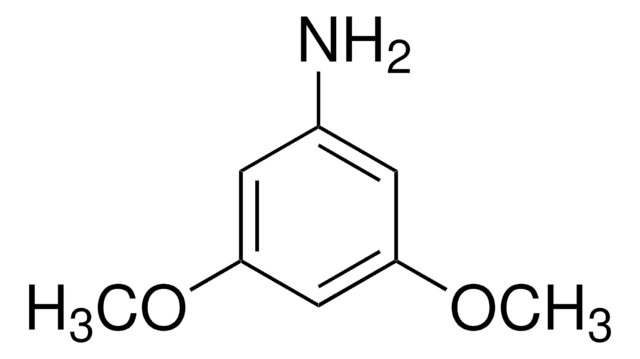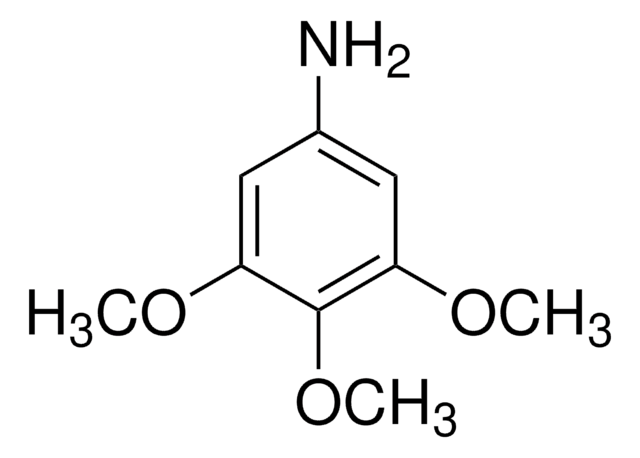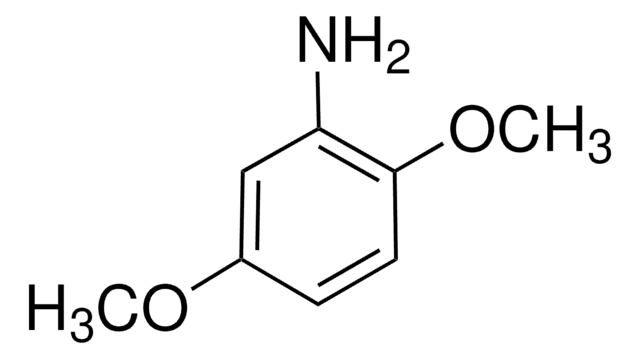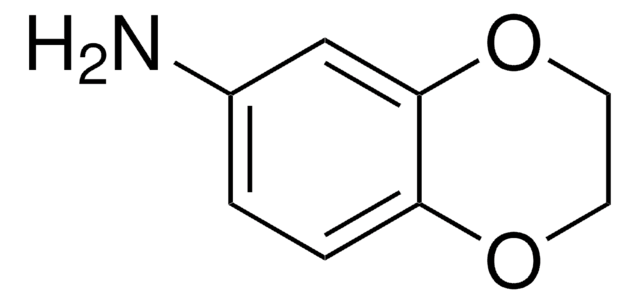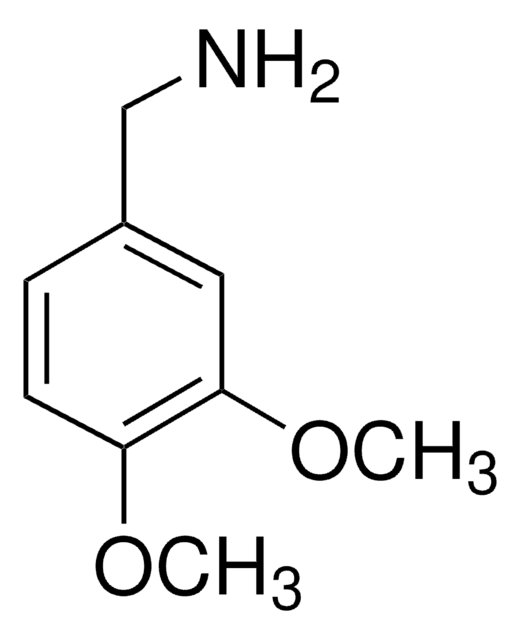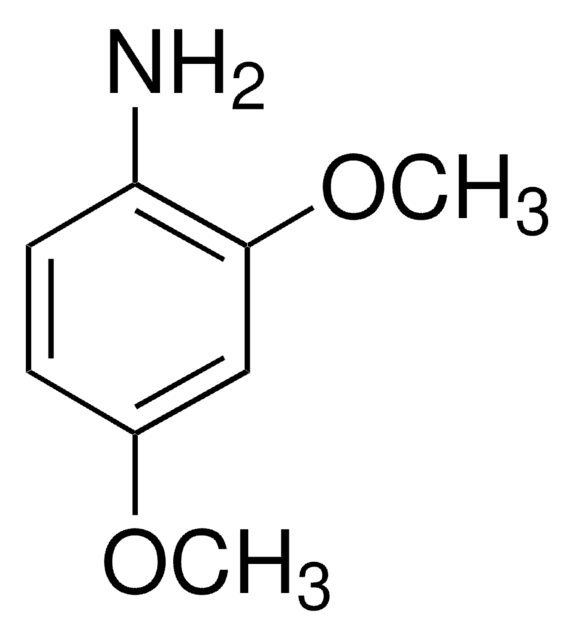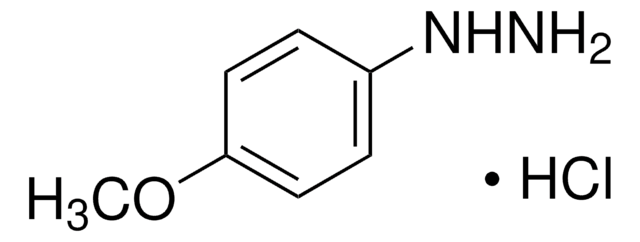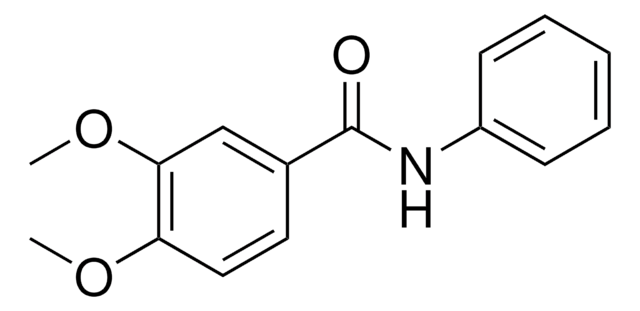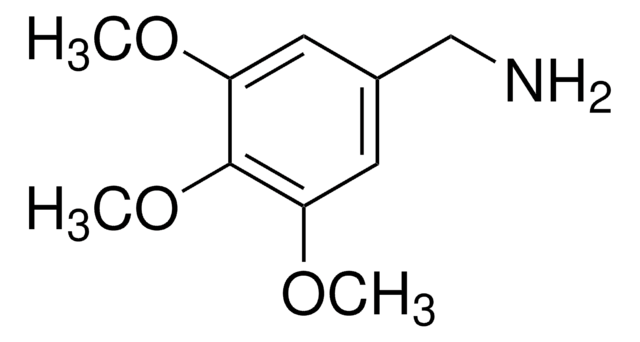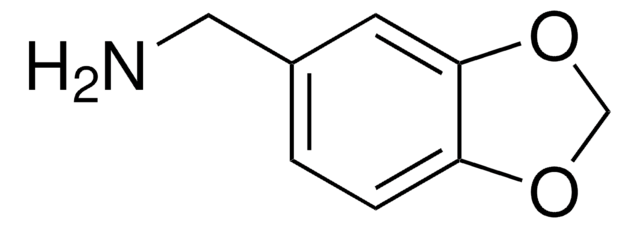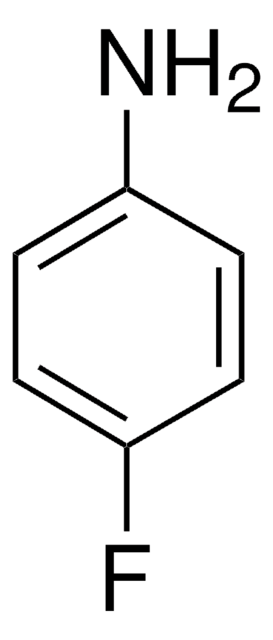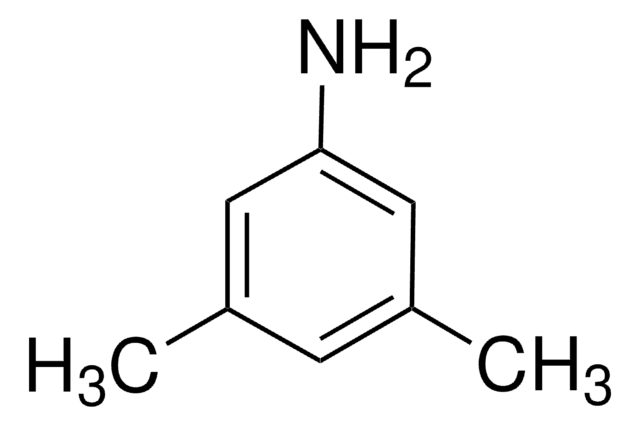A83008
3,4-Dimethoxyaniline
98%
Synonym(s):
4-Aminopyrocatechol dimethyl ether, 4-Aminoveratrole
Sign Into View Organizational & Contract Pricing
All Photos(1)
About This Item
Linear Formula:
H2NC6H3(OCH3)2
CAS Number:
Molecular Weight:
153.18
Beilstein:
743399
EC Number:
MDL number:
UNSPSC Code:
12352100
PubChem Substance ID:
NACRES:
NA.22
Recommended Products
Quality Level
Assay
98%
form
powder
bp
174-176 °C/22 mmHg (lit.)
mp
85-89 °C (lit.)
SMILES string
COc1ccc(N)cc1OC
InChI
1S/C8H11NO2/c1-10-7-4-3-6(9)5-8(7)11-2/h3-5H,9H2,1-2H3
InChI key
LGDHZCLREKIGKJ-UHFFFAOYSA-N
Looking for similar products? Visit Product Comparison Guide
Related Categories
Signal Word
Warning
Hazard Statements
Precautionary Statements
Hazard Classifications
Acute Tox. 4 Dermal - Acute Tox. 4 Oral
Storage Class Code
11 - Combustible Solids
WGK
WGK 3
Flash Point(F)
>230.0 °F
Flash Point(C)
> 110 °C
Personal Protective Equipment
dust mask type N95 (US), Eyeshields, Gloves
Choose from one of the most recent versions:
Already Own This Product?
Find documentation for the products that you have recently purchased in the Document Library.
Customers Also Viewed
Takashi Ikawa et al.
Chemistry (Weinheim an der Bergstrasse, Germany), 26(19), 4320-4332 (2020-01-03)
Benzynes were selectively generated in situ from phenols and trapped regioselectively with potassium hexamethyldisilazide to form primary anilines following acidic workup. The direct conversion of a phenolic hydroxyl group into a free amino group is a useful method for the
Daniela Iguchi et al.
Photochemical & photobiological sciences : Official journal of the European Photochemistry Association and the European Society for Photobiology, 15(1), 105-116 (2015-12-24)
Photochemical reactions tend to give more than one photoproduct. However, such a reaction can be a powerful synthetic tool when it is possible to conduct it in regioselective conditions yielding a single photoproduct. Water-surfactant solutions as reaction media can be
Chad D Iverson et al.
Journal of chromatography. A, 1422, 186-193 (2015-10-28)
Porous graphitic carbon (PGC) is an increasingly popular and attractive phase for HPLC on account of its chemical and thermal stability, and its unique separation mechanism. However, native PGC is strongly hydrophobic and in some instances excessively retentive. As part
Our team of scientists has experience in all areas of research including Life Science, Material Science, Chemical Synthesis, Chromatography, Analytical and many others.
Contact Technical Service
